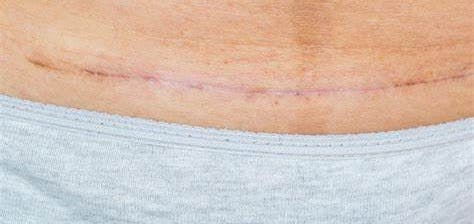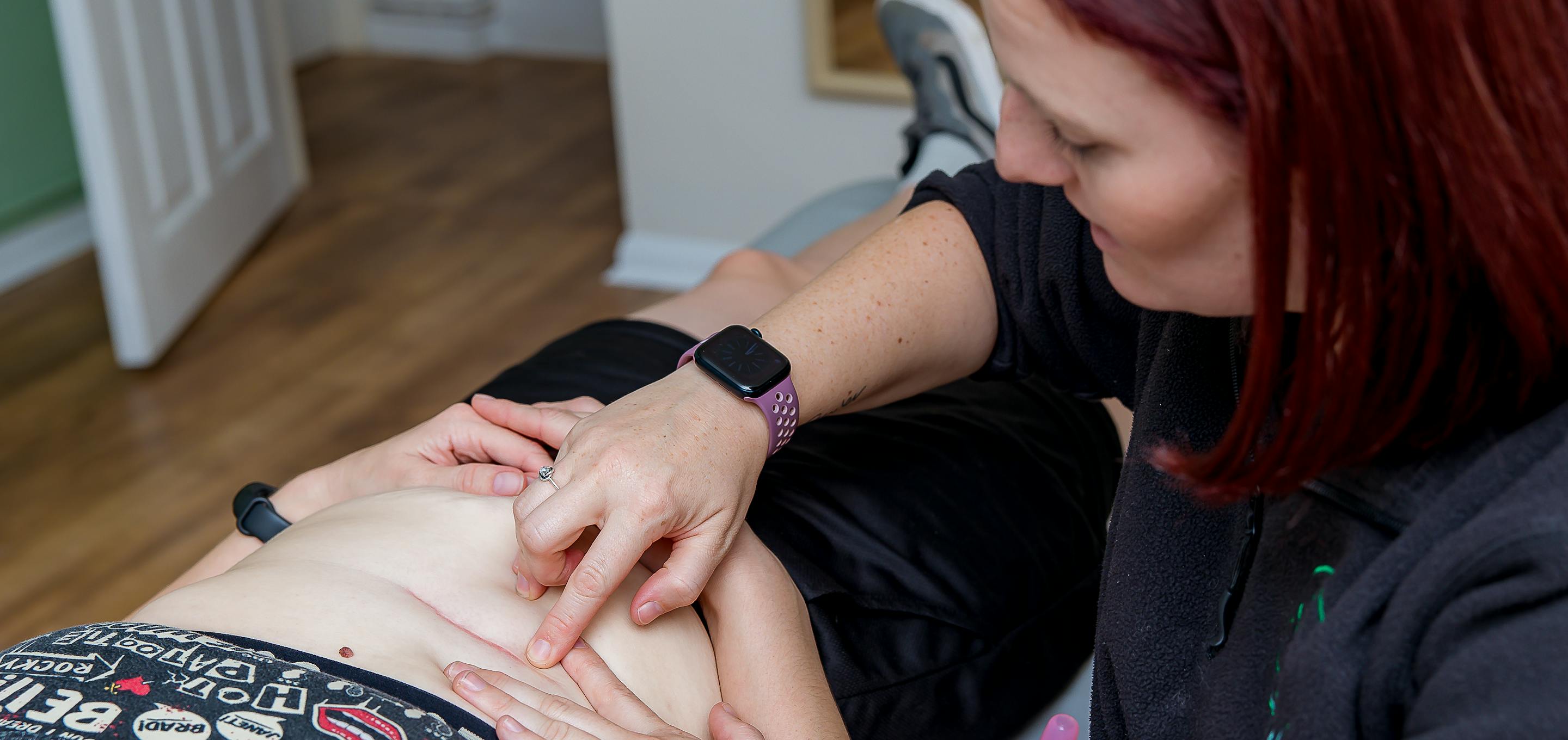A review from a recent case Angela worked on to improve their surgical scar.
This case study highlights the profound and multifaceted benefits of Scar Therapy, showcasing how it addresses not only the physical challenges of scar healing but also the emotional and mental toll that surgery can leave behind. For many individuals, surgical scars represent more than just a physical reminder of their procedure; they can also carry the emotional weight of the experience, including pain, fear, and vulnerability. The therapy provided by Angela, the Scar Therapist, demonstrates how a thoughtful and integrative approach can facilitate recovery in both body and mind.
The client initially sought treatment approximately ten months after undergoing abdominal surgery, which had left both keyhole and incision scars. While these scars had healed externally, the client continued to experience uncomfortable pulling and tugging sensations, likely caused by adhesions. Adhesions are a form of internal scar tissue that can bind surfaces within the body that are not typically connected, leading to restricted movement and persistent discomfort. In addition to the physical symptoms, the client also reported a loss of sensation in parts of the lower abdomen and expressed feeling disconnected from the affected area. This sense of disconnection was compounded by the client’s discomfort with looking at or touching their scars, as well as lingering emotional distress related to the illness and surgery. These issues often coexist, as physical symptoms can exacerbate emotional distress, creating a cycle that hinders recovery.
Through a course of Scar Therapy, Angela combined several techniques to address the client’s concerns. Physically, gentle massage and silicone cupping techniques were used to reduce the impact of adhesions and improve mobility in the affected tissue. These techniques helped ease the tension and pulling sensations, allowing the client to move more freely without discomfort. In parallel, Angela incorporated mindfulness breathing techniques into the sessions, creating a calming environment where the client could begin to reconnect with their body. This integration of physical and emotional support is a cornerstone of effective scar therapy.
To extend the benefits beyond the clinic, Angela taught the client self-care techniques, including breathing exercises and scar massage, empowering them to take an active role in their healing process. These at-home practices helped sustain the progress made during therapy sessions and fostered a deeper sense of connection and trust in the body’s ability to heal.
The results were remarkable. After four treatments, the client experienced a significant reduction in the uncomfortable tugging and pulling sensations, allowing them to move more comfortably. Sensation began to return to areas that had previously been numb, a sign that the tissue was healing not just on the surface but internally as well. Perhaps most notably, the client reported feeling calmer and more at ease when reflecting on their surgery and the challenging period of illness that preceded it. Over time, they developed a newfound appreciation for their body and its resilience, marvelling at its capacity to recover from extensive trauma.
This case serves as an inspiring example of how Scar Therapy can improve not only the physical functionality of scar tissue but also address the emotional and psychological impact of surgery. The reduction of adhesions and the return of sensation enhanced the client’s physical comfort, while the focus on mindfulness and self-care allowed them to rebuild a positive relationship with their body. The process transformed their scars from a source of discomfort and distress into a symbol of healing and recovery.
Ultimately, this highlights the holistic power of Scar Therapy. It demonstrates that healing is not just about treating physical symptoms but also about addressing the emotional narratives tied to those symptoms. By combining therapeutic techniques with compassionate care, Scar Therapists like Angela can help clients reclaim their physical comfort, emotional well-being, and sense of self, empowering them to move forward with confidence and positivity.







